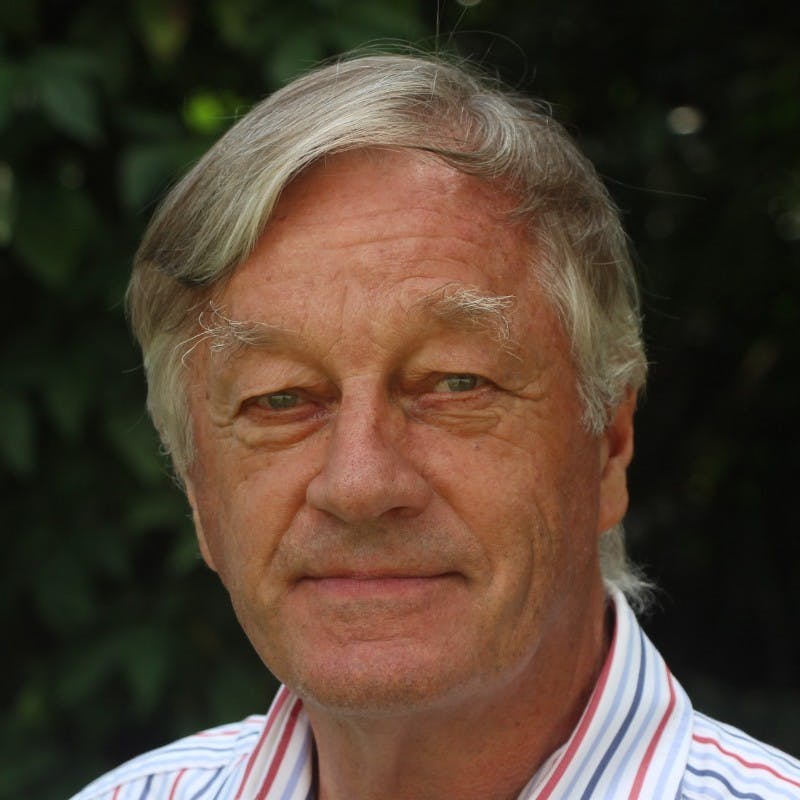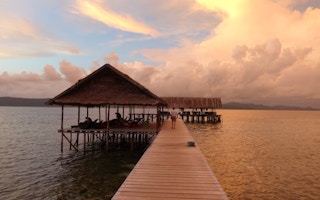After 12 years living and working in Singapore, most recently running offgrid renewable energy firm Energy Renewed, Hans van Mameren is relocating to his home country, the Netherlands.
To continue reading, subscribe to Eco‑Business.
There's something for everyone. We offer a range of subscription plans.
- Access our stories and receive our Insights Weekly newsletter with the free EB Member plan.
- Unlock unlimited access to our content and archive with EB Circle.
- Publish your content with EB Premium.
The 77 year-old Dutchman, who spent 50 years in the shipping trade transporting, among other things, oil and gas around the world before pivoting to renewables in 2017, is moving partly because the projects he had high hopes for – including a plan to electrify one million boats in Southeast Asia inspired by the business model of furniture retailer IKEA – haven’t worked out.

Hans van Mameren founded Singapore-based sustainability solutions firm Energy Renewed in 2017. Image: LinkedIn
Van Mameren launched Energy Renewed in the wake of the 2014 oil price crash and the oversupply of offshore shipping. He was motivated to launch a renewables firm partly as a result of his observations of changing weather patterns at sea.
The more surprises the weather produced, the more van Mameren worried about the connection between the fossil fuel he was transporting, and the climate it was making more unpredictable. A ship carrying oil refinery construction equipment that was destroyed in freakish force 11 winds off the coast of Canada was one incident that inspired him to pivot to clean energy.
The idea behind Energy Renewed was to provide sustainability solutions in remote locations around Southeast Asia. But getting projects off the ground has proved difficult and the company will be winding down. Van Mameren is leaving Singapore on 29 May.
The boat electrification project didn’t bear fruit, partly because Van Mameren couldn’t find the right partners in Singapore to start production. “We talked to the only company that does it [build boats using lightweight fibreglass] in Singapore, but they did not have the ambition for the scale we wanted,” he told Eco-Business.
The idea was to produce a toolkit for the manufacture of electric boats that could roll out across the archipelago to replace polluting, diesel-powered vessels. The idea was inspired by the Ikea model of homeware distribution and assembly. Energy Renewed would supply the parts for the boats and instructions for how to assemble the kit, and the boats would be put together by local boat builders who could sell off the completed vessels and turn a profit.
The Covid-19 pandemic also slowed the project down and made putting the pieces together difficult. “The project was gaining momentum, then we went into lockdown. [Video call technology platforms] Zoom and Teams can keep a project going for a while, but direct contact between people is still very important, especially in the early stages.”
”The last one of the million boats is not the problem – it’s the first batch. The first stage is vital to show proof of concept and secure funding, then it can achieve scale.”
“If anyone wants to carry on with this project where we left off, I would support it,” he said.
Two other projects he had planned also never got up and running. One was a waste-to-energy project that involved using agricultural waste as feedstock. The other was providing clean energy solutions, including tidal power, in a luxury dive island in Raja Ampat, West Papua, Indonesia.
If the opportunity arose, Van Mameren said he might return to the region. “Not being able to find the right team and partners is something I very much regret. Maybe I could have done things differently, but that’s life,” he said. “If a viable opportunity came up tomorrow, I would jump on it,” he said.
Clean energy solutions are direly needed for rural parts of Southeast Asia, Van Mameren noted. “Rural areas need to become as liveable as urban areas, otherwise rural areas will become deserts,” he said, referencing the high rate of urbanisation in the regional bloc.
Reflecting on why the energy transition has been relatively slow in Southeast Asia – the only region in the world where coal is growing in the energy mix – van Mameren said a fear of change was partly to blame for the inertia.
“The energy transition has its own energy and cannot accommodate other interests. Geopolitical and economic vested interests often stand in the way [of change],” he said. “It doesn’t matter whether you talk to people on the ground or people in the boardrooms of multinationals, the attitude is the same – the unknown is frightening.”
“I’ve always liked the unknown and embraced change. Others are frightened by it,” he said. “But I will always be realistic. I’m not a dreamer. It’s not about dreaming – it’s about sensing what is possible.”














